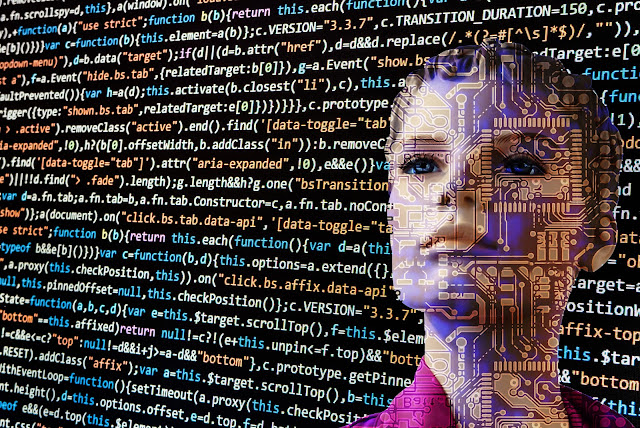In this article we will tell you about Exploring the Future of Artificial Intelligence. As we delve deeper into the 21st century, the realm of technology continues to evolve at an unprecedented pace. One of the most revolutionary advancements that have captured the world's attention is Artificial Intelligence.
With its ability to mimic human intelligence and perform complex tasks, AI has become a transformative force across various industries. In this article, we will Exploring the Future of Artificial Intelligence, its potential applications, and the ways it is shaping the future.
1. Understanding Artificial Intelligence:
Artificial Intelligence refers to the development of computer systems that can perform tasks that typically require human intelligence. These tasks include speech recognition, visual perception, decision-making, and problem-solving. AI systems are designed to learn from data, adapt to new information, and improve their performance over time.
2. AI in Healthcare:
The healthcare industry is at the forefront of adopting AI technologies. AI-powered systems can analyze vast amounts of medical data to assist in diagnosing diseases, identifying patterns, and suggesting personalized treatment plans. AI algorithms can also enhance the accuracy and efficiency of medical imaging, leading to early detection of diseases and improved patient outcomes.
3. AI in Finance:
Financial institutions are increasingly utilizing AI to streamline operations, detect fraudulent activities, and make data-driven investment decisions. AI algorithms can analyze large volumes of financial data in real-time, identify market trends, and provide valuable insights to traders and investors. Additionally, chatbots powered by AI are revolutionizing customer service by providing instant and personalized assistance.
4. AI in Transportation:
The transportation industry is undergoing a significant transformation due to AI advancements. Autonomous vehicles are becoming a reality, with AI algorithms enabling cars to navigate roads, detect obstacles, and make intelligent driving decisions. AI is also optimizing logistics and supply chain management, leading to improved efficiency and reduced costs.
5. AI in Education:
AI has the potential to revolutionize the education sector by personalizing learning experiences and enhancing student outcomes. Intelligent tutoring systems can adapt to individual students' needs, provide personalized feedback, and track their progress. AI-powered virtual assistants are also being used to answer students' queries and provide educational resources.
6. Ethical Considerations:
As AI becomes more ubiquitous, it raises important ethical considerations. Issues such as privacy, bias in algorithms, and the potential impact on the workforce need to be carefully addressed. Ensuring transparency, fairness, and accountability in AI systems is crucial to prevent unintended consequences.
Conclusion:
Topic related:-
- Understanding Artificial Intelligence
- AI in Healthcare
- AI in Finance
- AI in Transportation
- AI in Education
- Ethical Considerations
Make money online 2023 :- Read More
1. Understanding Artificial Intelligence:
Artificial Intelligence refers to the development of computer systems that can perform tasks that typically require human intelligence. These tasks include speech recognition, visual perception, decision-making, and problem-solving. AI systems are designed to learn from data, adapt to new information, and improve their performance over time.
2. AI in Healthcare:
The healthcare industry is at the forefront of adopting AI technologies. AI-powered systems can analyze vast amounts of medical data to assist in diagnosing diseases, identifying patterns, and suggesting personalized treatment plans. AI algorithms can also enhance the accuracy and efficiency of medical imaging, leading to early detection of diseases and improved patient outcomes.
3. AI in Finance:
Financial institutions are increasingly utilizing AI to streamline operations, detect fraudulent activities, and make data-driven investment decisions. AI algorithms can analyze large volumes of financial data in real-time, identify market trends, and provide valuable insights to traders and investors. Additionally, chatbots powered by AI are revolutionizing customer service by providing instant and personalized assistance.
4. AI in Transportation:
The transportation industry is undergoing a significant transformation due to AI advancements. Autonomous vehicles are becoming a reality, with AI algorithms enabling cars to navigate roads, detect obstacles, and make intelligent driving decisions. AI is also optimizing logistics and supply chain management, leading to improved efficiency and reduced costs.
5. AI in Education:
AI has the potential to revolutionize the education sector by personalizing learning experiences and enhancing student outcomes. Intelligent tutoring systems can adapt to individual students' needs, provide personalized feedback, and track their progress. AI-powered virtual assistants are also being used to answer students' queries and provide educational resources.
6. Ethical Considerations:
As AI becomes more ubiquitous, it raises important ethical considerations. Issues such as privacy, bias in algorithms, and the potential impact on the workforce need to be carefully addressed. Ensuring transparency, fairness, and accountability in AI systems is crucial to prevent unintended consequences.
Conclusion:
In this article, we know about Exploring the Future of Artificial Intelligence. Artificial Intelligence is poised to transform industries and empower humanity in ways we never thought possible. From healthcare to finance, transportation to education, AI is revolutionizing the way we live, work, and interact with technology. However, it is essential to proceed with caution, ensuring that AI is developed and deployed responsibly, addressing ethical concerns and maximizing its potential for the betterment of society.


